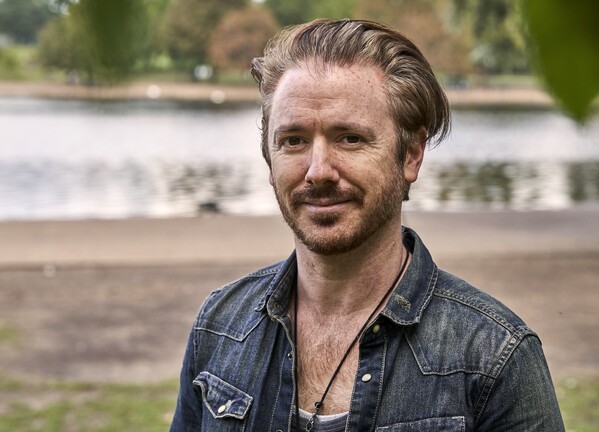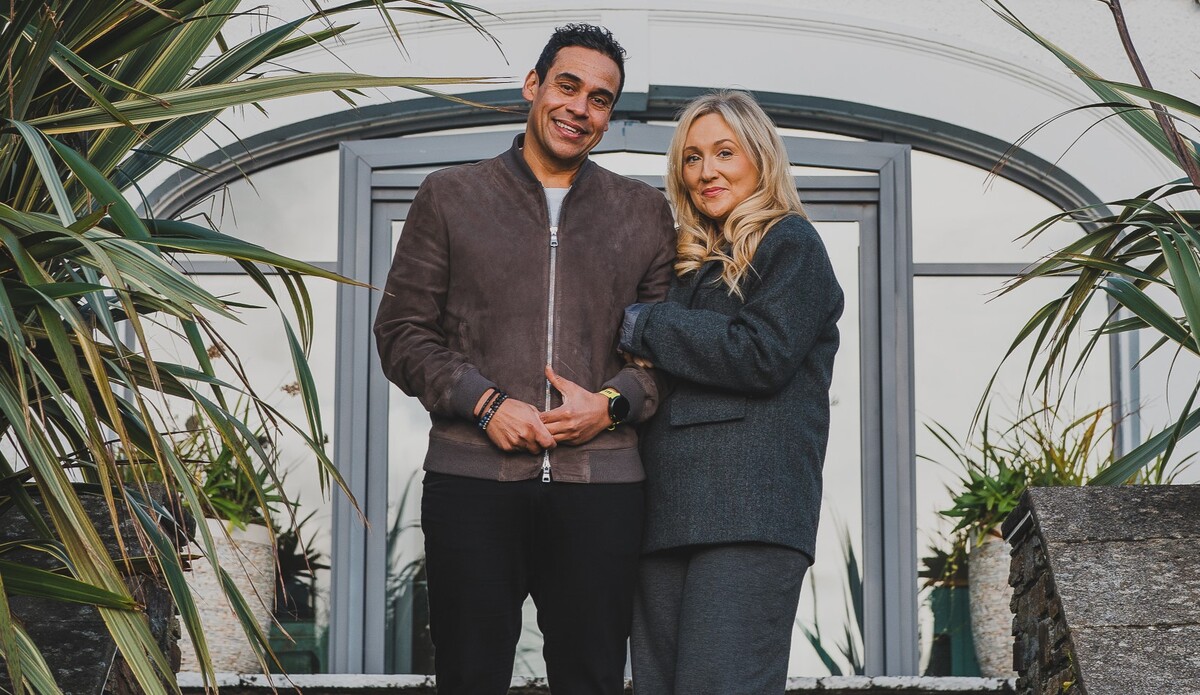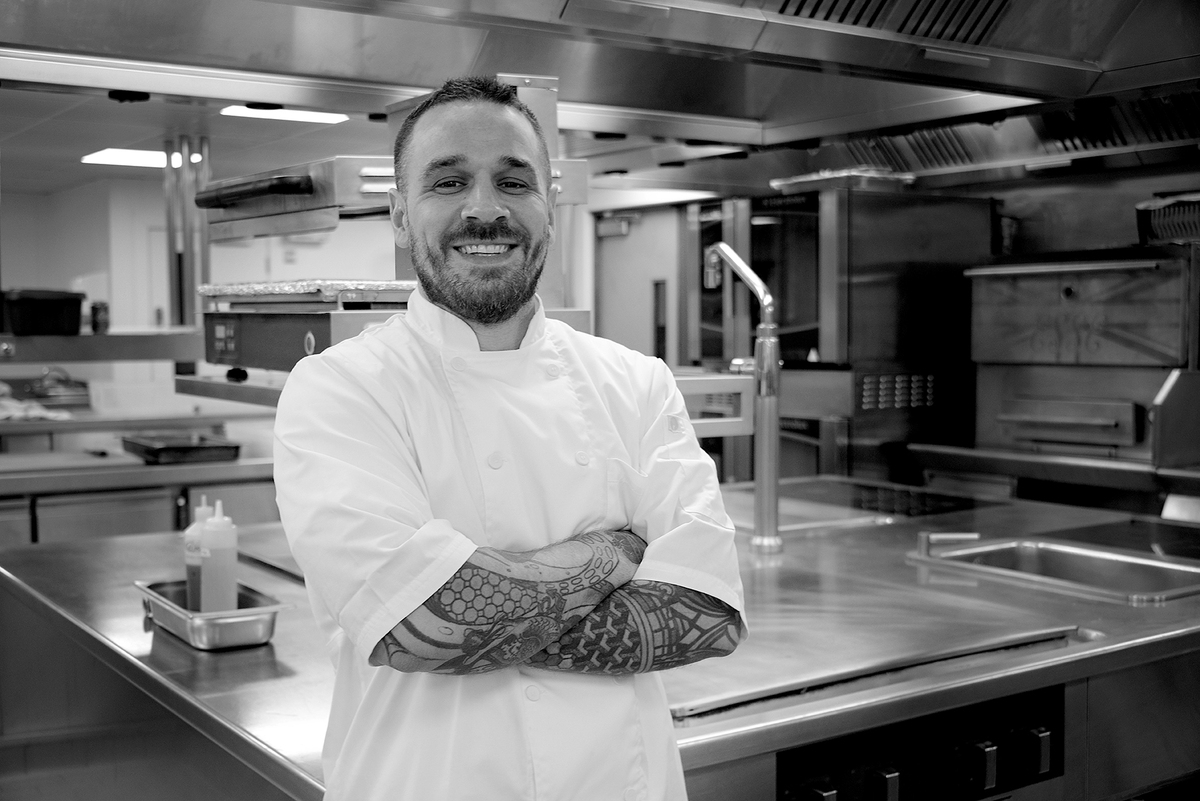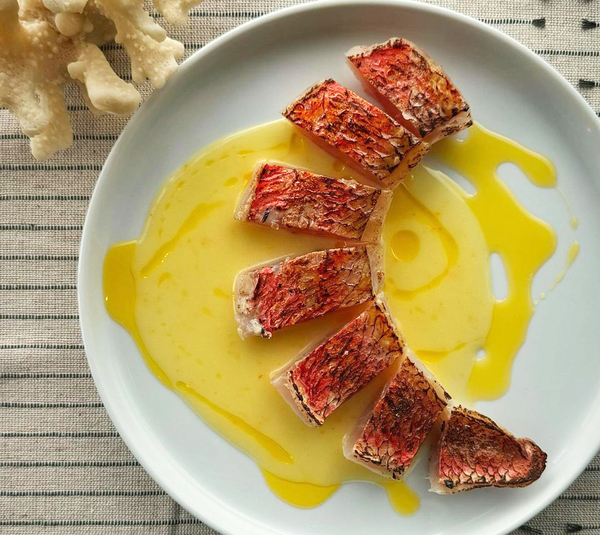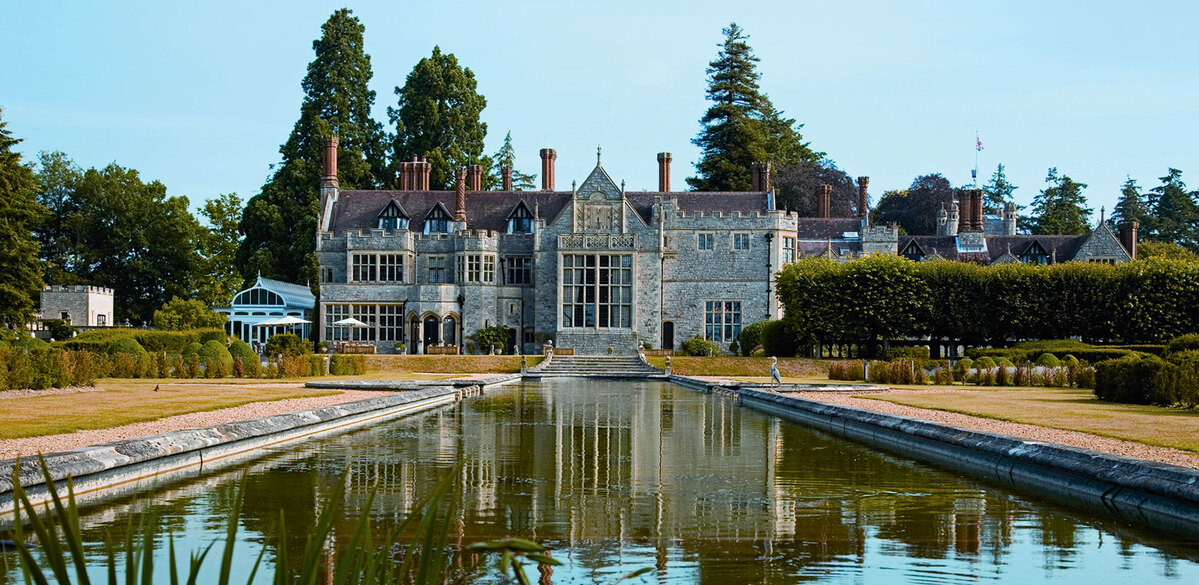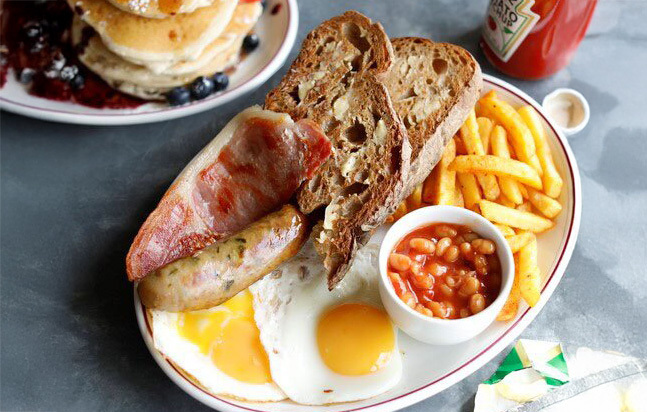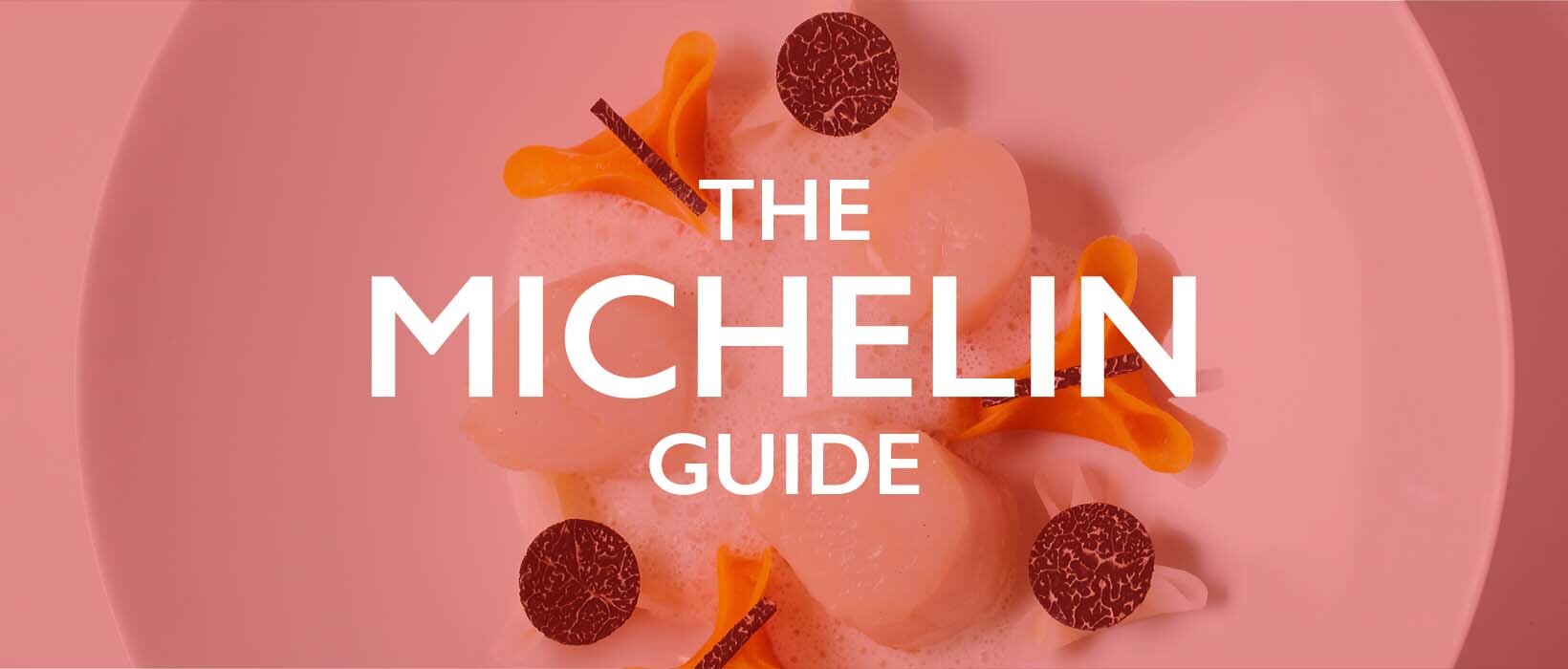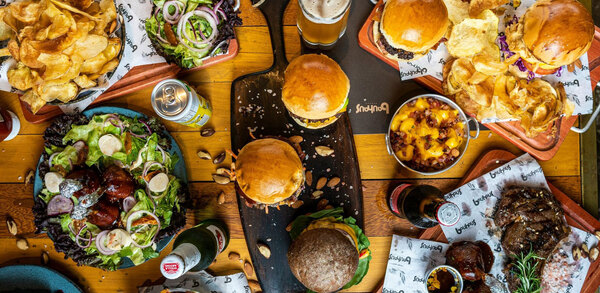This much I know: Andrew Scott
The executive chef of Restaurant 56 at Sudbury House in Oxford tells Katie Pathiaki about his experience on Great British Menu and offers some advice for young chefs searching for their dream job
I started working in a kitchen at 14. I got that job after winning a cooking competition in Scouts. A chef at Whately Hall in Banbury told me to polish up my menu before the competition and then offered me a job off the back of it.
I wanted to be an RAF pilot but I wasn't clever enough. Something else you probably didn't know about me was that I used to DJ when I was 16. I loved house, garage and drum and bass, but the kitchen took over.
My mum and dad were both in the industry. They both went to catering college and hotel management school, and my grandad owned 10 hotels in Newquay, so I've always been surrounded by it. It must be in my blood.
My dad telling me not to be a chef drove me to be a chef. He said it was a rubbish job and that I needed to train to be a hotel manager. But I stuck to my guns and went to North Oxfordshire College for three years. When he dropped me off at the Great British Menu studios I brought it up. I said I wanted to prove to him that I could do it. I said that if I was going to be a chef, I'd be the best chef I could be. He is proud, of course he is, but I needed to prove it to him.
You don't really learn until you're on the job.
If you have a passion for cooking, then you wonât treat it as a job â" itâs more of a lifestyle. As long as youâve got a great team around you, then youâve got camaraderie. Itâs like being part of a family where you look after each other.
Chef years are like dog years. Every year youâre a chef is three years in a normal nine to five job because you work so many hours and days.
Find someone who is prepared to take you under their wing, to teach you everything, to take time with you and go through being a chef with you. Simon Hague at Mallory Court became like a step-father to me. He had the time, temperament and patience to teach me everything.
Not every job is for every chef and sometimes you donât fit the mould. It could be your biggest dream, but you might hate it. When I get people in now, I say to them that we both have to make sure itâs right for us and that itâs something theyâre going to enjoy. Â As an employer, I need to make sure Iâm not just taking on a pair of hands to get me out of the shit â" I would rather have the right person who is going to stay for a few years.
Being a chef isnât about being on Twitter and showing your face on TV, youâve got to get your head down. Youâve got to write an attractive menu, keep your pen-pushers, your bottom-liners and your team happy. Itâs a bit of a juggling act.
My advice to young chefs would be to spend a few days working somewhere before you take the job. Let the chefs forget that youâre in the kitchen, let them lose their temper and see what theyâre really like, because thatâs what youâll have to put up with week after week.
I would like to see the industry change. I think we all need to put a lot of effort into the roots of the industry, and the new wave of chefs needs to make it solid again. I think the bottom fell out of it a few years ago and now people are working towards making it better.
Being on Great British Menu was the pinnacle of my career. To watch that since it started and then be asked to go on it was amazing. I was so proud. My family and friends watched it, and thatâs lovely.
CV
2014-present Executive chef, Sudbury House Hotel and Restaurant 56, Faringdon, Oxfordshire
2012-2014Â Head chef, the Curlew Restaurant, Bodiam, East Sussex
2008-2012 From junior sous chef to head chef, Mallory Court Hotel, Royal Leamington Spa
2008 Junior sous chef, Lords of the Manor Hotel, Upper Slaughter, Cheltenham
2007-2008 Chef de partie, LâEnclume, Cartmel, Cumbria
Videos from The Caterer archives



